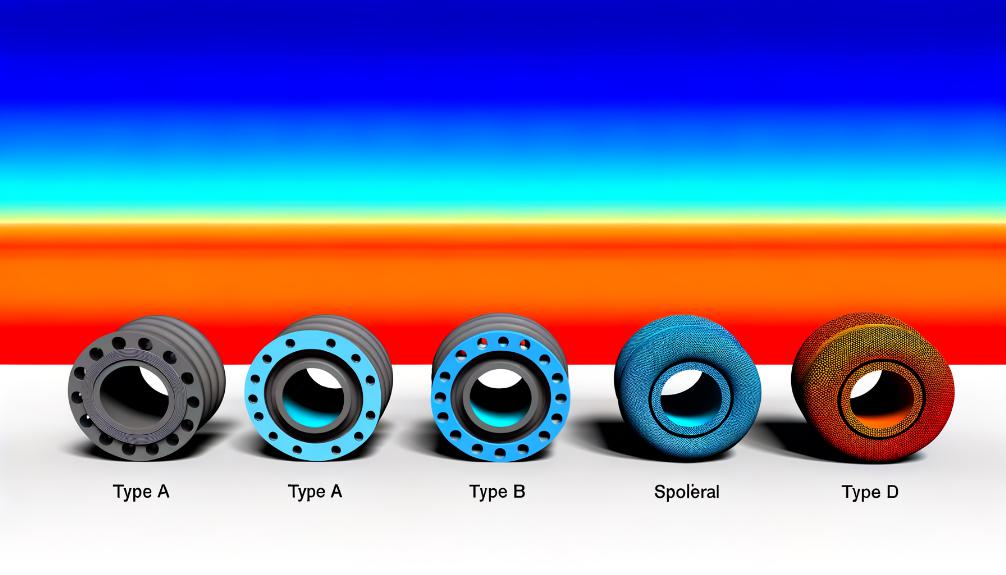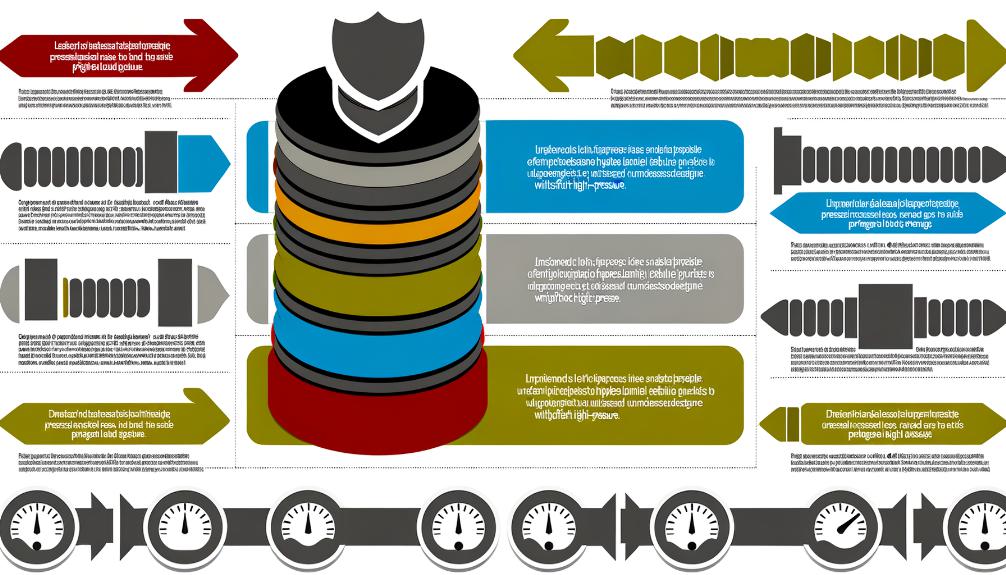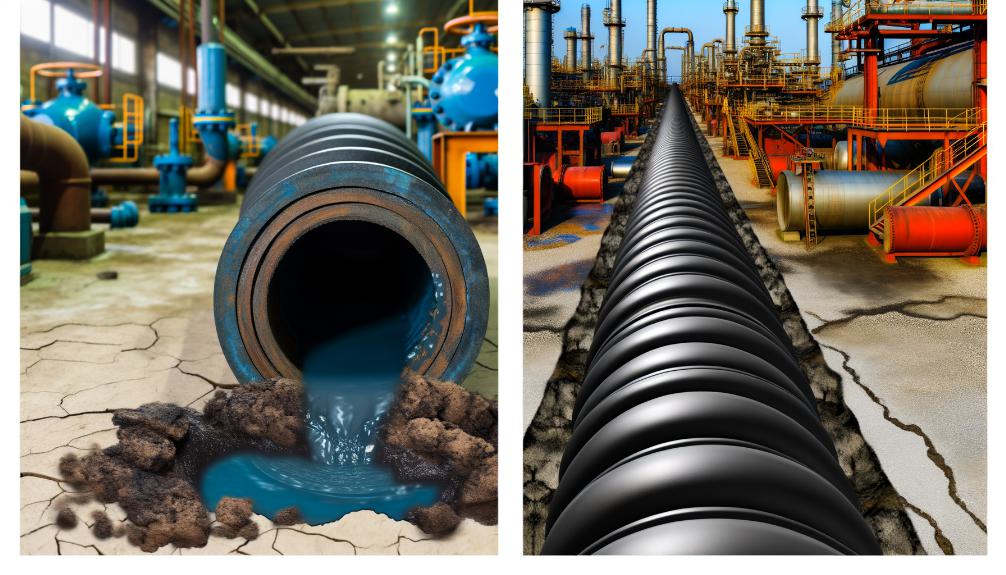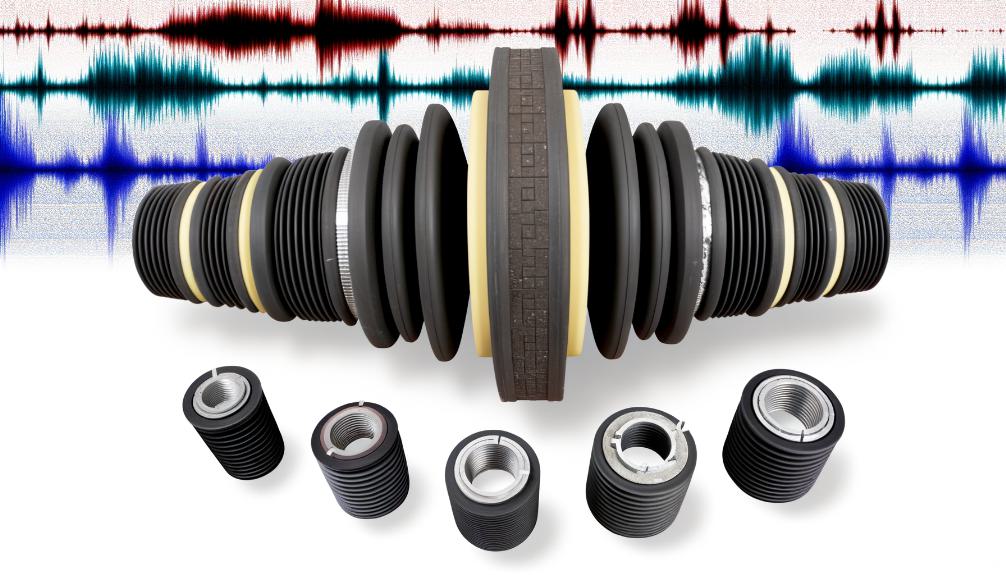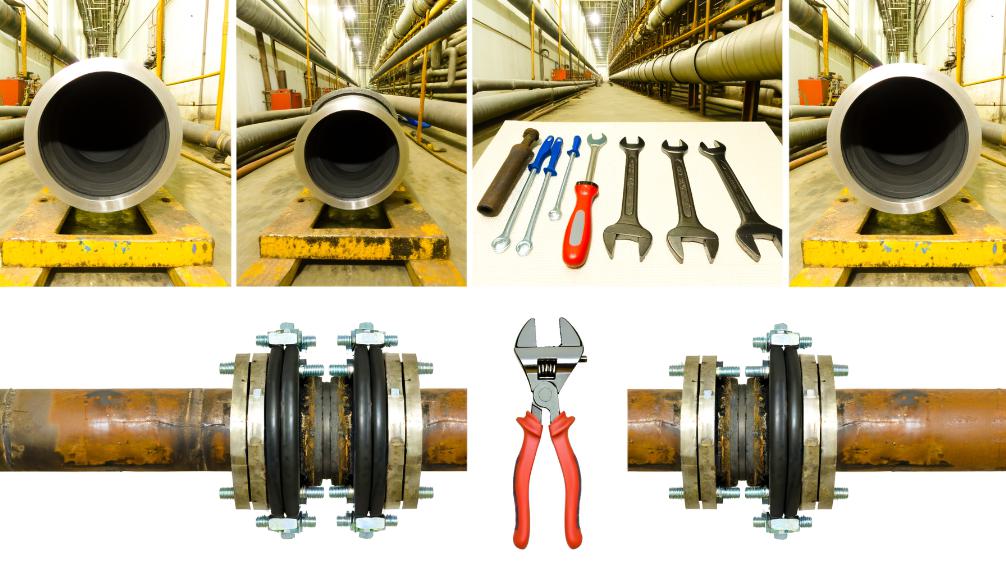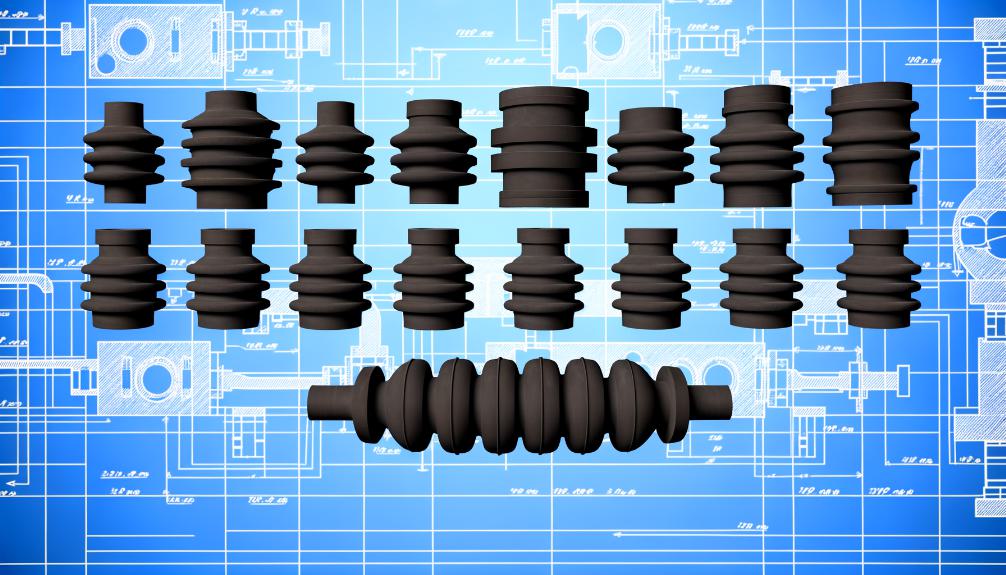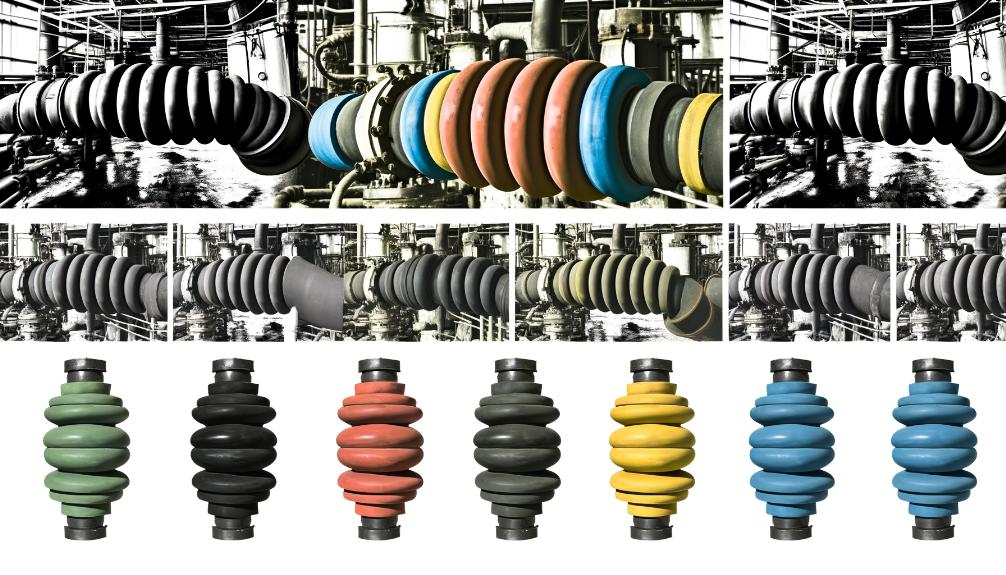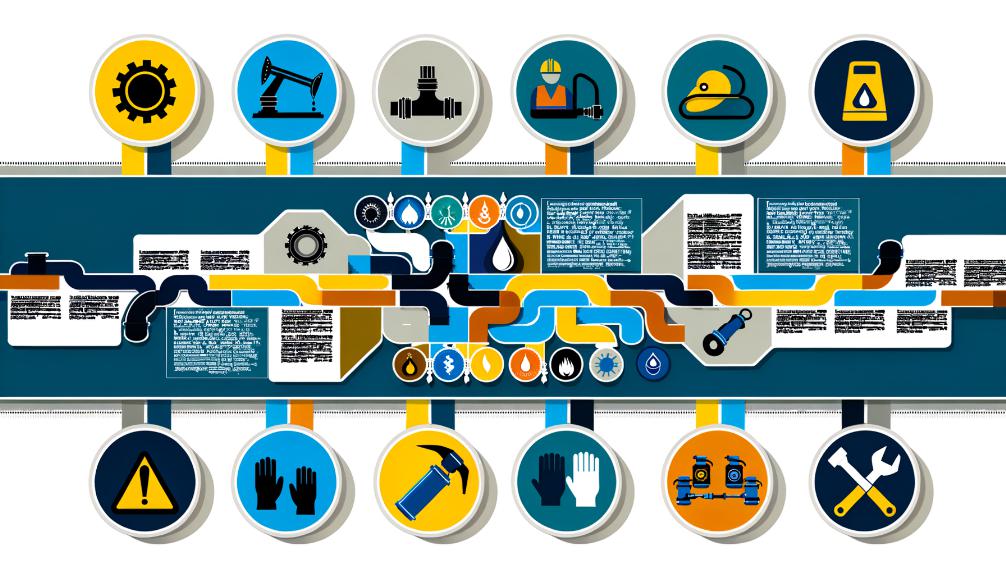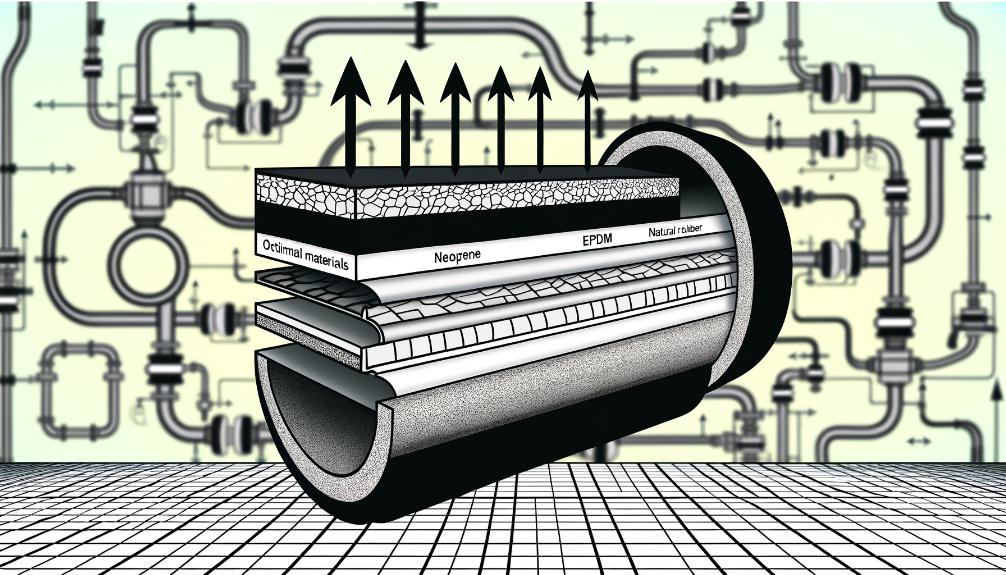In assessing thermal control solutions, you'll find single sphere joints, twin sphere models, spool type joints, rubber arch joints, and concentric reducing joints each offer unique advantages. Your choice hinges on factors like thermal expansion, vibration absorption, and space constraints. For instance, while single sphere joints excel in compact systems, twin sphere models provide enhanced… Continue reading 5 Types of Rubber Expansion Joints for Thermal Control
Category: Rubber Expansion Joints
Top Rubber Expansion Joints for High-Pressure Applications
Interestingly, as you're exploring solutions for high-pressure applications, you've likely encountered a variety of rubber expansion joints. Each type, from neoprene and EPDM to nitrile, butyl, and silicone offerings, boasts unique properties that make them suitable for specific environments and pressures. Analyzing their performance under various conditions, including temperature tolerance and chemical resistance, is crucial… Continue reading Top Rubber Expansion Joints for High-Pressure Applications
What Is the Significance of Correct Rubber Expansion Joint Sizing?
Imagine a carefully orchestrated symphony where every instrument plays its part with precision; similarly, in the world of piping systems, the correct sizing of rubber expansion joints is critical. You're dealing with components that must perfectly match the system's dynamics to prevent joint failure, enhance overall performance, and ensure safety. Incorrect sizing can lead to… Continue reading What Is the Significance of Correct Rubber Expansion Joint Sizing?
Top 7 Rubber Expansion Joints for Earthquake Protection
In assessing earthquake protection, you must consider single sphere models, double sphere designs, and spool-type joints, each offering unique advantages in vibration isolation and displacement accommodation. Your focus should also extend to arch expansion joints, concentric reducer joints, tapered expansion joints, and rubber duckbill check valves, which all play pivotal roles in enhancing structural resilience… Continue reading Top 7 Rubber Expansion Joints for Earthquake Protection
Top Installation Tips for Rubber Expansion Joints
A staggering 80% of rubber expansion joint failures stem from incorrect installation practices, highlighting the critical nature of adhering to precise guidelines. As you embark on your next project, it's essential you conduct a thorough pre-installation inspection to identify any potential issues that could compromise the joint's performance. Ensuring correct orientation and adopting proper storage… Continue reading Top Installation Tips for Rubber Expansion Joints
Top 10 Rubber Expansion Joints for HVAC Systems
Considering the Single Sphere Joints, you've likely observed their ubiquitous application in HVAC systems, primarily due to their flexibility and efficiency in absorbing thermal expansion and reducing vibration. Analyzing the top 10 rubber expansion joints, including Twin Sphere Models and Reinforced Neoprene Types, offers a comprehensive viewpoint on their varied applications and advantages in specific… Continue reading Top 10 Rubber Expansion Joints for HVAC Systems
What Type of Rubber Expansion Joint to Choose?
In a recent upgrade of a chemical processing plant, you've opted for ethylene propylene diene monomer (EPDM) rubber expansion joints due to their superior resistance to heat and chemicals. However, the decision-making process doesn't end there. You must consider the specific application requirements such as temperature range, pressure, and the media flowing through the system.… Continue reading What Type of Rubber Expansion Joint to Choose?
Top 10 Tips for Rubber Expansion Joints in Gas Pipelines
Imagine the gas pipelines as the arteries of the industrial world, with rubber expansion joints serving as vital flex points that accommodate movement and prevent leaks. You must select the right material that stands up to the specific gases flowing through these veins. Understanding the pressure ratings is crucial; even a slight oversight could lead… Continue reading Top 10 Tips for Rubber Expansion Joints in Gas Pipelines
5 Best Materials for Rubber Expansion Joints
Imagine the engineering landscape as a dynamic puzzle, where each piece must flexibly fit yet stand firm against pressures both physical and environmental. You're navigating this terrain, seeking the ideal materials for rubber expansion joints that not only endure but excel. Neoprene offers resilience against weathering, while EPDM rubber stands out for its resistance to… Continue reading 5 Best Materials for Rubber Expansion Joints
Maximizing Lifespan of Rubber Expansion Joints: Complete Guide
Imagine if rubber expansion joints lasted forever; while that's a pipe dream, you can significantly extend their lifespan with the right knowledge. You've got to understand not just the types of rubber expansion joints but also the nuanced maintenance strategies that keep them functioning optimally. From grappling with common issues to adopting installation best practices,… Continue reading Maximizing Lifespan of Rubber Expansion Joints: Complete Guide
